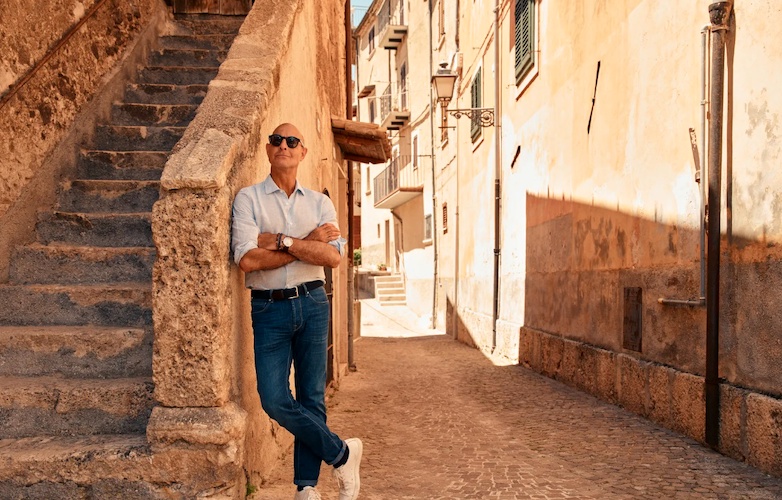Review: "Tucci in Italy" Contemplates Italian Traditionalism Through Food
It remains a miracle that no one has punched Stanley Tucci in the face. As he continues to turn out remarkable performances in film and television, most recently in the Academy Award nominated Conclave, he has become a prominent voice on food and Italian culture. Talented, traveling the word, and making a career out of eating? Frankly, let me punch him!
After two seasons traveling Italy on CNN, Tucci is returning to his favorite place with National Geographic’s new series Tucci in Italy. Across five episodes, Tucci travels the country’s distinct regions, looking to further understand the culture through the food and people. It’s a simple, often-utilized premise even though it produces varying degrees of success. (Pro: Padma Lakshmi. Con: Antoni.) Luckily for viewers, Tucci in Italy is a sumptuous treat.
Within each region, Tucci looks at the history of the area through the dishes served. From elevated tripe to peasant dishes turned on their head, he pontificates about how a simple plate of food can say so much. For foodies, Tucci runs the gamut, never focusing on a socio-economic food bracket for too long. In fact, I was quite surprised at the breadth of options presented, highlighting not just gourmet cuisine, but also visiting family homes and barns to revel in traditional recipes passed down from generation to generation.
These generations of culinary knowledge bring to light the confidence Italy has with its own tradition. Throughout the five episodes, time is not just calculated in years or decades, but centuries of edible delights. The tastes cover the palette and the greater Italian timeline, bringing to light wars, recessions, and a forever changing world.
As Italy has changed, so has the cooking. Yet, due to their proclivity for the aforementioned tradition, the dishes that fill the kitchens across each region have strong roots in the past. Though modernity is visible, each chef (no matter the caliber) prefers to stay firmly within the rich culture of the country, only slightly tweaking the plates to represent their own edible imagination.
Now, with tradition comes repulsion towards otherdom. As Italy continues to yearn for the past, hundreds of thousands of its residents remain in the country’s rear view mirror. Amidst these bits of cooking majesty, also brought to light is the country’s sourness. Tucci conscientiously brings forward the worst of the country he loves, adding these stories to further paint a picture of a conservative country. A gay couple fights to have their adopted child properly recognized while up against anti-LGBTQ+ policies. A group of immigrants use their Cooking Without Borders group to discuss the oppression they face when trying to look for stable living. These stories are not anomalies, but rather extra flavor to accompany the featured dishes.
That’s what sets Tucci in Italy apart from other travelogue programming: the portrait it paints never shies away from the shadows. Food is representative of every part of the human experience due to its essential nature. Thus, as many fight for a better tomorrow, their meals will replicate the battle. Tucci is not afraid to help highlight these battles, even if it could shine a darker light on a place he loves dearly.
Yet, isn’t that what we all should strive for? Using our platform, no matter how big or small it may be, to work towards a greater tomorrow? Tucci in Italy ever so simply uses the power of sharing a dish as a way to highlight human connection. A beautiful plate of pasta should be a welcome for all to dig in, not a deterrent. Maybe that’s what we should all work to build: a dinner table big enough to seat everyone.
Tucci in Italy airs May 18th on National Geographic. All episodes will stream on Disney+ and Hulu on May 19th.

